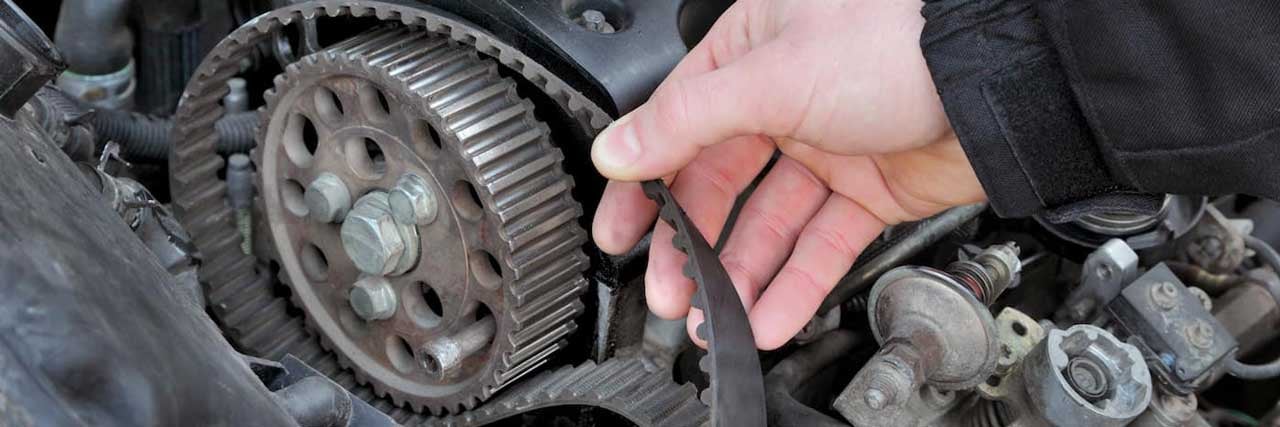Timing Belt Replacement

Timing Belt Replacement and Service at Stanley Ford Gilmer
Your vehicle has a lot of moving parts that all need to move at very specific intervals in order to provide you with the performance you’re looking for. Your timing belt is responsible for keeping everything in sync, which is why when it goes out, you’ll immediately notice a drastic difference in performance. When you want to fix the issue quickly near Gilmer, Tyler, or Longview, you’re going to want to schedule a service with Stanley Ford Gilmer.Your Belt’s Purpose
Timing belts are often easily confused with timing chains, and it’s easy to see why. A timing belt is made out of rubber, while a timing chain is composed of metal. Your vehicle should have one or the other, and if you’re not quite sure, you can always check your owner’s manual. The purpose of your timing belt is to keep your engine’s internals in line. It does this through the use of hard teeth that interlock with the cogwheels of your camshafts and your crankshaft, making sure that they both function in sync. Your timing belt may have other responsibilities as well depending on your model, as it may power your water, oil, and injection pump. When your timing belt is in trouble, you’ll often find that your vehicle struggles to give you the power that you’re used to, and it can even lead to small metal parts mashing together.Signs of Wear
Your timing belt is a vital part, so when you want to make sure that it’s in good condition, you’ll want to be on the lookout for any of the issues that a bad belt might cause. When looking at your vehicle, you may notice signs like:- Your model overheats quickly
- The check engine light appears on your dashboard
- You begin to experience oil leaks
- Your engine is making a ticking sound
- Your belts sound like they are squealing or rubbing together
- Your engine is much less powerful than before
- You experience vibrating or shaking when behind the wheel
- Your vehicle refuses to start
Repairing Your Belt
Most people dread service, but when it comes to your timing belt, this isn’t a repair that you’re going to want to hold off on. If your timing belt truly is the issue and it goes unchecked, it could lead to irreparable damage inside your engine or incredibly costly repairs. When you bring your model in for service, our team will be able to make sure that it’s the root cause of your issue, and that you’re not experiencing the failure of any other parts. If you end up needing a replacement, you can expect your new timing belt to last an average of 60,000-100,000 miles. While you’re at Stanley Ford Gilmer, you may also want to consider getting some of your other services out of the way, so that you don’t have to run another errand for an oil change or a tire rotation later on.It’s important to schedule a service with Stanley Ford Gilmer as soon as you feel that your timing belt may be going out.

